Cybercriminals are setting up fake websites, virtual lotteries and recruiting “tester” scams to collect personal information and financial data, posing risks ranging from data loss to financial loss.
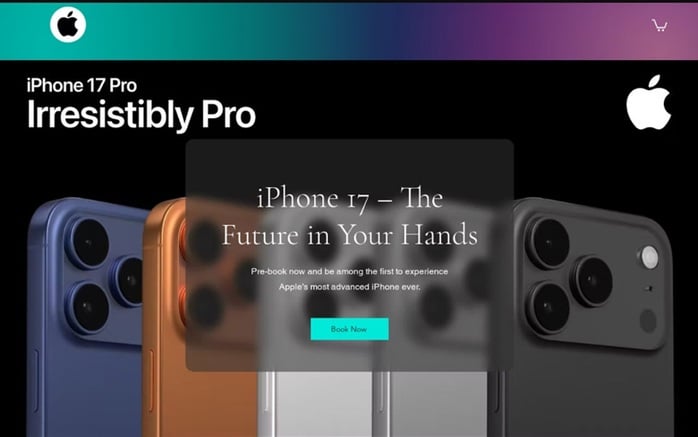
A scam website impersonates an official Apple website with an “Order Now” button that leads to a form that collects users’ financial data
A common tactic is a fake Apple Store website, offering pre-orders for the iPhone 17 with a “slowly sold out” warning. When users enter their payment information, their bank card data is immediately stolen. In addition, scammers also launch fake lotteries offering free iPhones, asking victims to fill out surveys, provide their phone numbers and emails, and pay shipping fees. To create trust, they also add fake comments claiming to have received the prize.
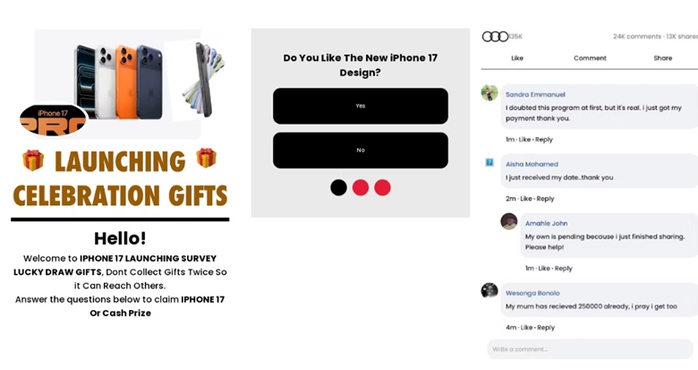
A scam website uses the iPhone "anniversary gift" trick
Another tactic is the “iPhone 17 early experience”, aimed at technology enthusiasts. Participants must provide their address, contact information and pay for shipping but in the end, they do not receive any product, just spam emails and become the target of subsequent attacks.
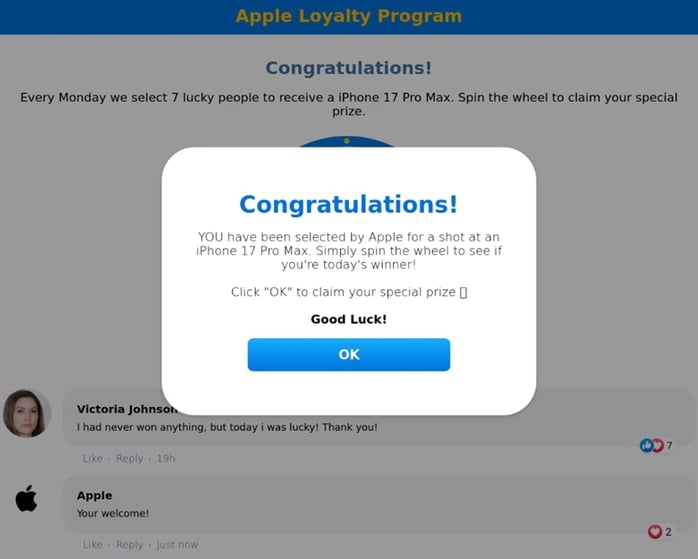
A fake “Apple loyalty” program with the trick of giving away new iPhones
According to Ms. Tatyana Shcherbakova, Web Content Analyst at Kaspersky, "Cybercriminals always know how to take advantage of the heat from major product launches, turning users' excitement into opportunities to steal data. According to our observations, phishing tricks are becoming more and more sophisticated, not just sketchy fake emails, but have been improved into websites with interface designs similar to official websites. Users need to put vigilance first, always verify information, instead of acting emotionally, to avoid becoming victims of these threats."
Experts recommend measures to protect yourself from the wave of scams following the iPhone 17 launch event:
- Buy only from official sources: Order through the Apple website, authorized retailers, or verified carriers, and avoid visiting fake sites.
- Always check links, be cautious of suspicious offers: Do not click on emails, messages or automated ads promising promotions or prizes.
- Don't share personal data to get a "free" gift: Reputable programs rarely ask for sensitive information upfront. If you're asked for your name, card number, or address, consider that a red flag.
- Turn on multi-factor authentication and account monitoring: Enable Two-Factor Authentication (2FA) for your Apple ID account and financial apps, and regularly check your statements to detect unusual transactions early.
Source: https://nld.com.vn/dat-truoc-iphone-17-coi-chung-roi-vao-bay-196250919173247734.htm




![[Photo] The 4th meeting of the Inter-Parliamentary Cooperation Committee between the National Assembly of Vietnam and the State Duma of Russia](https://vphoto.vietnam.vn/thumb/1200x675/vietnam/resource/IMAGE/2025/9/28/9f9e84a38675449aa9c08b391e153183)

![[Photo] Joy on the new Phong Chau bridge](https://vphoto.vietnam.vn/thumb/1200x675/vietnam/resource/IMAGE/2025/9/28/b00322b29c8043fbb8b6844fdd6c78ea)
![[Photo] High-ranking delegation of the Russian State Duma visits President Ho Chi Minh's Mausoleum](https://vphoto.vietnam.vn/thumb/1200x675/vietnam/resource/IMAGE/2025/9/28/c6dfd505d79b460a93752e48882e8f7e)





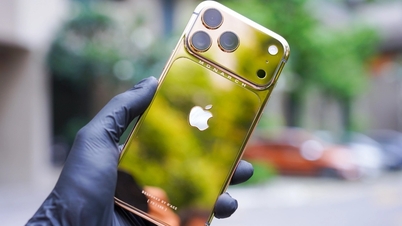

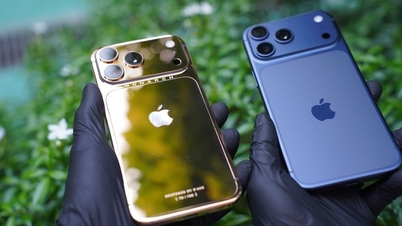















































































Comment (0)